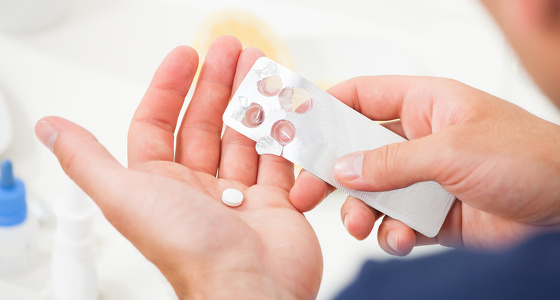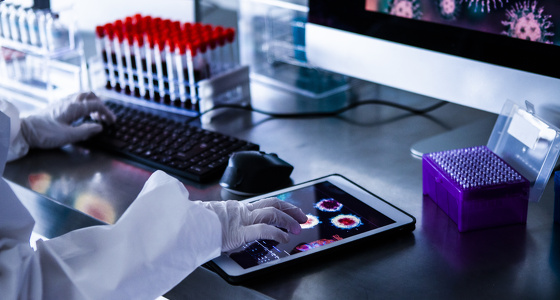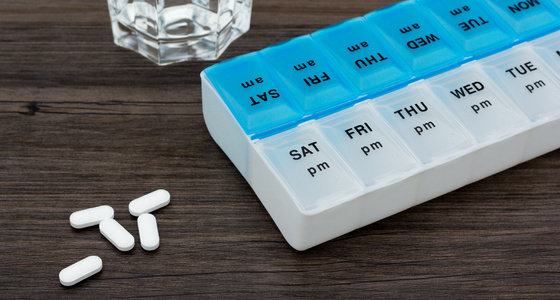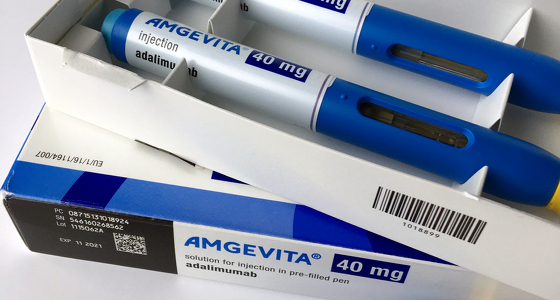Having IBD probably means you will need to take regular medications. In the UK you may be able to get repeat prescriptions for your medicine so you don't need to see the doctor each time you need more. Find out more in this article...
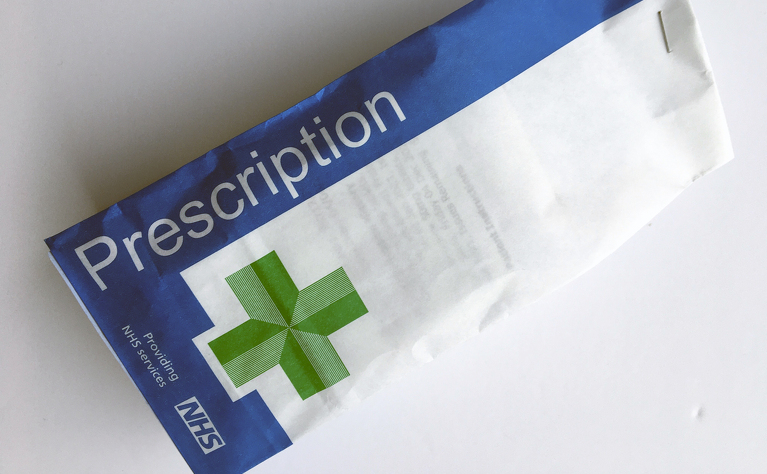
If you have inflammatory bowel disease (IBD) it is very likely you are, or have been, taking a variety of medicines (or using specialised items, such as stoma products) to manage your disease. These might be medicines you take for a short time (induction treatment) or medicines you take over a long period, or even indefinitely (maintenance treatment).
When your doctor or healthcare professional decides upon a new treatment, this information is written as a prescription. A prescription is an order for medicine (or products) to be given to a pharmacist to prepare and dispense.
In the UK a paper prescription is a small two-part green and white slip that your doctor might hand you at the end of an appointment. The green part is the actual prescription which the pharmacist will need so they can give you your medicine. These paper prescriptions are usually only used when medicine is needed short-term, often for an acute issue, such as an ear infection.
If your doctor wants the medicine to be available to you on an ongoing basis, for example if you have a long-term condition like Crohn’s disease or ulcerative colitis, they include this instruction on the white part of the prescription, which is for you to tear off and keep (this information is also recorded on your electronic patient record). It is your repeat prescription, allowing you to request future prescriptions of that medicine without having to book an appointment to see your doctor. Information on this slip includes:
On the white side of your prescription slip, tick the medicines that you require and take (or post) it to your surgery. Some doctor's surgeries may also have their own repeat prescription request forms that you can complete instead of using the white slip.
It will generally take at least two working days for your GP surgery to process your repeat prescription request and send it to the pharmacy. Sometimes you can choose (or it might be necessary) to collect your paper prescription and take it to a pharmacy yourself.
Depending on the pharmacy’s stock, your prescription should then be available within a day or two. Some medications may need to be ordered in and so might take longer to be ready for collection.
Most GP practices offer online services for ordering repeat prescriptions. You will need to register for these services if you haven't already. Contact your GP practice or visit their website to find out how to do this. Once you are registered, you can order your repeat prescriptions online, and they will then be sent to your preferred pharmacy to be dispensed. You can then collect your medicine from the pharmacy, or in some cases have your medicine delivered to your home.
You can now view and order repeat prescriptions using a number of apps and websites that work with your GP practice’s computer systems. When you have chosen which one to use, and registered for an account, you can place your order and the request is sent directly to your GP practice. Some of these apps and websites may also allow you to see your medical records or book GP appointments online.
Once the repeat request has been approved, it can be sent electronically to a pharmacy of your choice. The apps or websites usually allow you to nominate your preferred pharmacy, or you can do this at your GP practice, or by contacting the pharmacy directly. When your medicine is ready you can collect it from your pharmacy, or in some cases have it delivered to your home.
A list of these apps and websites, as well as further information about how to order your repeat prescriptions online is available on the NHS website: A guide to ordering repeat prescriptions online - NHS Website
In all cases, make sure you request your repeat prescription in plenty of time so you don’t run out of medicine. If you do run out of your medicine before your next prescription is ready for collection, your pharmacy may be able to dispense a small emergency supply. Speak to your pharmacy for advice.
If you are unable to collect your medicine from the pharmacy, someone else can collect it for you, but you will need to contact the pharmacy to give the person’s details, and your consent.
A standard prescription is valid for six months (unless it contains a controlled medicine; strong painkillers such as morphine, some tranquilisers and stimulants), and a repeat prescription needs to be dispensed for the first time within six months of the date on the prescription. After this, a repeat prescription can continue to be valid for longer than six months, according to directions given when it was prescribed by your doctor.
All repeat prescriptions are reviewed regularly, at least once a year. This will be carried out at an appointment with a doctor, nurse or other healthcare professional.
All NHS prescriptions are free if you live in Scotland, Wales or Northern Ireland.
There is a standard prescription cost in England, and you pay this amount for each item you receive. Up-to-date prescription cost information is available on the NHS website: How much is the NHS prescription charge?
If you have a stoma, you are entitled to free NHS prescriptions for necessary stoma products. NHS-prescribed contraceptive medicines are also free in England.
You might be eligible to receive free NHS prescriptions in England if:
You can find more information about eligibility for free NHS prescriptions, and how to apply for medical exemption certificates on the NHS website: Am I entitled to free prescriptions?
If you pay for your prescriptions, and take several different medicines or are taking medicines long-term for your inflammatory bowel disease, this can become a significant expense.
It might be worth applying for an NHS prescription payment certificate (PPC). This is a card which you pay for to cover the cost of all your NHS prescriptions, including NHS dental prescriptions, however many you need. There are two types available:
You can apply for and pay for a PPC online, over the phone or by post. You can also buy PPCs at some pharmacies. Once your PPC card arrives, show this at the pharmacy when you collect your medicine and you will not need to pay.
You can find more information about PPCs, current charges and how to apply for them online on the NHS website: Save money with a prescription prepayment certificate (PPC)
If you are on a low income, but are not receiving benefits that entitle you to free NHS prescriptions, you may be able to get help with your prescription costs (and other NHS costs) through the NHS Low Income Scheme (LIS).
You can find out more information, and how to apply for the scheme online on the NHS website: Save money with a prescription prepayment certificate (PPC)
When you take some medicines that are used to treat inflammatory bowel disease (such as azathioprine, 6-mercaptopurine and biologic medicines that you administer at home), you need to have regular monitoring to make sure they remain safe and effective for you. It is important you keep up to date with these tests, as your GP will need to see relevant test results in order to continue issuing repeat prescriptions. If you don’t have up to date monitoring test results then your GP may refuse to issue your repeat prescription until you have these.
